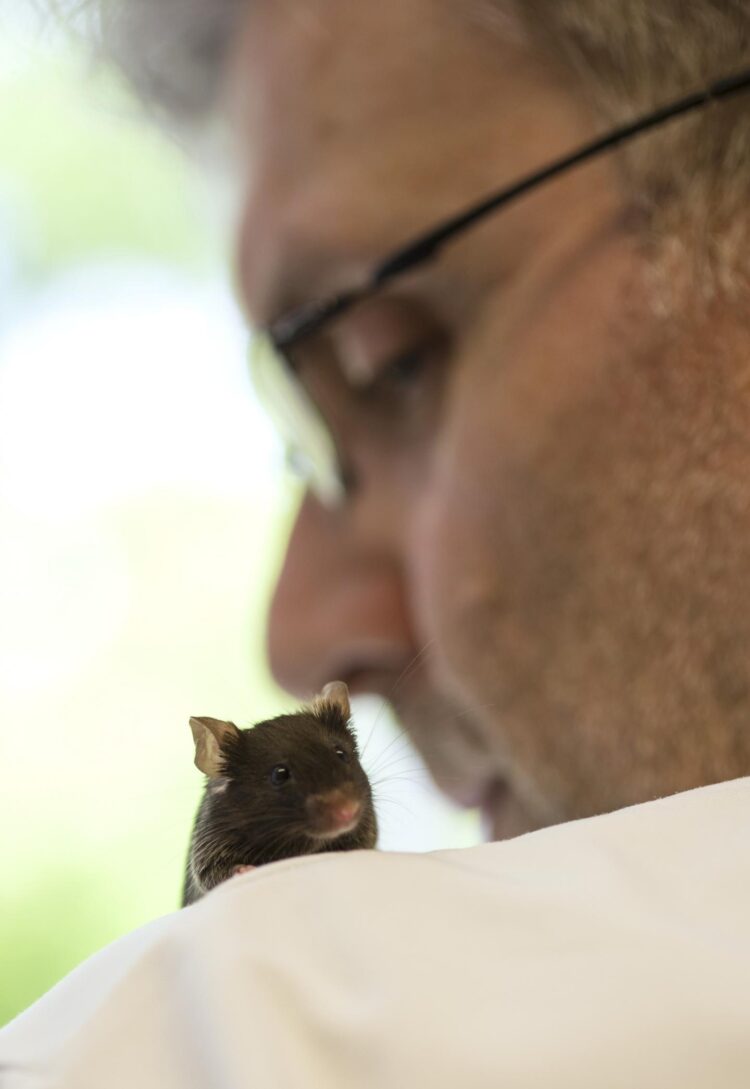Despite advances in prevention and therapy, cardiovascular diseases are still one of the leading causes of death worldwide. Scientists have only recently begun to understand the key role of alternative splicing – the “stitching together” of messenger RNA during gene transcription – in cardiovascular diseases. The Leducq Foundation is providing 7 million U.S. dollars over the next five years to support the Cardiac Splicing as a Therapeutic Target (CASTT) project, which is comprised of six European and U.S. researchers. They will focus on examining the regulation and disease relevance of alternative splicing in different types of heart cells.
“Our goals include mapping the path from splicing factor discovery to drug development, and creating a database that will make it easier in the future to incorporate complex splicing information into heart disease diagnostics,” says Professor Michael Gotthardt, group leader at the Max Delbrück Center for Molecular Medicine in the Helmholtz Association (MDC) and the European coordinator of CASTT. Professor Leslie Leinwand, biologist and founder of several successful BioPharma companies who is the North American Coordinator adds: “The Leducq Foundation allows us, as scientists and clinicians, to think outside the box of what is traditionally considered effective treatments for heart disease. It enables us to connect different research directions from animal models to patients with innovative genomic and computational approaches.”
Other network members include Professor Euan Ashley, a cardiologist at Stanford University; Professor Maria Carmo-Fonseca, a cell and oncobiologist at the University of Lisbon; Professor Benjamin Meder, a cardiologist at Heidelberg University Hospital; and Professor Lars Steinmetz, a geneticist at the EMBL Heidelberg and Stanford University.
Splicing errors can cause heart disease
Heart muscle cells require a variety of proteins so that they can develop, contract, transmit electrical impulses to neighboring cells, and respond to external influences such as stress. The blueprints for producing these proteins are contained in the genes and are transcribed into messenger RNA (mRNA), which then carries this information to the cell’s protein factories – the ribosomes.
Some cells, especially those of higher organisms, use a trick to produce a wide variety of protein molecules. The genes of these cells do not only encode one particular protein, but can serve as the blueprint for several proteins. Genes usually contain alternating coding segments called exons, and non-coding regions called introns. The latter can be removed as needed during transcription, while exons can be linked together in a variable fashion. This creates mRNAs with different exon compositions. This process, known as “alternative splicing,” is executed by the spliceosome – a complex machinery made up of splicing factors and splicing regulators. Errors in the splicing process can lead to heart disease. “While remodeling processes dominate in the embryonic heart, allowing the heart to grow and mature, the most important processes at work in the adult heart are those that ensure effective pumping,” explains Gotthardt. “In diseased hearts, however, we see gene expression patterns that partly transition back toward the embryonic state in terms of protein formation. As a result, the heart no longer operates within the normal range.”
A heart for large meals
The researchers work both clinically as well as experimentally with human cell lines, artificial heart tissue, and animal models. In addition to mice, this includes Burmese pythons, because this powerful strangler is one of only a few living creatures capable of rapidly growing the size of its heart – within a day of swallowing its large prey. This increases blood flow and speeds up the distribution of nutrients throughout the reptile’s body. The organ then shrinks back to its original size when digestion is completed. “We want to elucidate the very specific regulation of splicing processes in the python heart because we think these findings could be of therapeutic use – for example, in patients suffering from hypertrophic cardiomyopathy, which involves a thickening of the heart muscles,” says Leinwand, chief scientific officer for the BioFrontiers Institute at University of Colorado Boulder.
###
Scientific contacts
Professor Michael Gotthardt
Neuromuscular and Cardiovascular Cell Biology Lab
Max Delbrück Center for Molecular Medicine in the Helmholtz Association (MDC)
+49-(0)30-9406-2245
[email protected]
Professor Leslie Leinwand
BioFrontiers Institute
University of Colorado Boulder
[email protected]
Max Delbrück Center for Molecular Medicine in the Helmholtz Association (MDC)
The Max Delbrück Center for Molecular Medicine in the Helmholtz Association (MDC) is one of the world’s leading biomedical research institutions. Max Delbrück, a Berlin native, was a Nobel laureate and one of the founders of molecular biology. At the MDC’s locations in Berlin-Buch and Mitte, researchers from some 60 countries analyze the human system – investigating the biological foundations of life from its most elementary building blocks to systems-wide mechanisms. By understanding what regulates or disrupts the dynamic equilibrium in a cell, an organ, or the entire body, we can prevent diseases, diagnose them earlier, and stop their progression with tailored therapies. Patients should benefit as soon as possible from basic research discoveries. The MDC therefore supports spin-off creation and participates in collaborative networks. It works in close partnership with Charité – Universitätsmedizin Berlin in the jointly run Experimental and Clinical Research Center (ECRC ), the Berlin Institute of Health (BIH) at Charité, and the German Center for Cardiovascular Research (DZHK). Founded in 1992, the MDC today employs 1,600 people and is funded 90 percent by the German federal government and 10 percent by the State of Berlin.
The University of Colorado Boulder
The University of Colorado Boulder is a bold, innovative community of scholars and learners who accelerate human potential to solve the humanitarian, social and technological challenges of our time. Its BioFrontiers Institute brings together researchers from the life sciences, physical sciences, computer science and engineering to uncover new knowledge at the frontiers of science and partner with industry to transform discoveries into tools for improving human health.
Media Contact
Jana Ehrhardt-Joswig
[email protected]
Original Source
https:/





